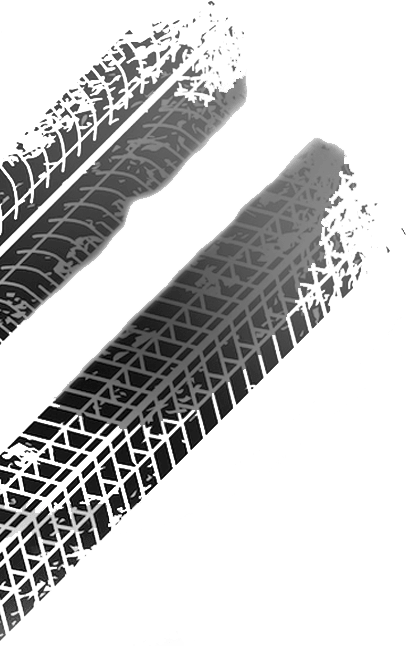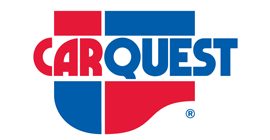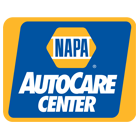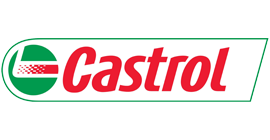
AUTONET TV
Archive for November 2020Beware of Potholes! (Avoiding Pothole Damage)Posted November 29, 2020 7:07 AMYou may live in a region where roads become pockmarked with craters known better as potholes. They're caused by moisture seeping through a compromised road surface that can freeze, expand and literally punch holes in the road. And when your vehicle hits one of those holes that's big enough, the impact can flatten a tire, bend a wheel or tear apart a suspension component. To minimize pothole damage, leave enough room between you and the vehicle in front of you so you can see the road surface and any upcoming potholes. That way you'll have time to slow down and steer around them. Also, if you see what looks like a puddle of water, it may be hiding a pothole underneath, so treat it as if was a pothole. If you keep your tires inflated to the manufacturer's specifications, they're more likely to withstand hard impacts. And the slower you're going when you hit a pothole, the less likely you are to break something. But if you do find you've hit a pothole pretty hard, here are some signs to watch out that could signal damage.
These are all symptoms you should have checked at your vehicle repair facility as soon as you can. The longer you wait, the more damage you may be doing. You also may find after hitting a pothole hard that the tire on that wheel is flat. Try not to drive any more on that tire since you could do a lot more damage to the tire and/or wheel. A call to roadside assistance may save you money in the long run by limiting the damage to what's already done. autoclinic of brandon Your Vehicle is Talking to YOU (Service Warning Signs)Posted November 22, 2020 10:10 AMYour vehicle may be like that famous battery bunny, the one that just keeps going and going. But while it may seem sometimes like you never need to take your vehicle in to be worked on, there are some things you should keep your eyes, ears and nose out for. They are warning you about something that needs attention at your vehicle service facility.
An old 80s TV show called "Knight Rider" featured a talking car. You already have a vehicle that's telling you things all the time. Give it a listen and it will keep you going safely down the road for many years to come. autoclinic of brandon A "Mounting" Problem (Motor Mounts)Posted November 15, 2020 10:34 AMYou know how heavy your engine and transmission are, so you can imagine how tough the parts that hold them onto your vehicle's sub-frame must be. Not only must they support the weight, they also have to isolate vibrations and noise from the passenger cabin. Pretty tall order, wouldn't you say? The parts that face that task daily are called the motor mounts, or engine mounts. They are usually made of rubber with steel brackets. Others contain a liquid for vibration and sound isolation. Most vehicles have three or four motor mounts, and while rubber or hydraulic liquids do a good job of damping the vibrations from the engine, they also have their limitations. The problem with rubber is that it gets old and brittle. Plus, if there's an oil leak anywhere in your engine and oil gets on the rubber motor mounts, rubber will deteriorate even more quickly. As for the liquid motor mounts, they can develop leaks and stop working. Here are signs a motor mount is going bad. You may hear a loud clunking or banging sound under the hood. That means the weight of the engine is shifting around enough to bang against other metal parts. You may feel bad vibrations, and the engine may feel like it's moving around in a strange way. When things get to that point, your vehicle can be damaged from that heavy engine knocking against things, and its time to replace one or more motor mounts. Schedule a visit to your vehicle service facility. There, a technician will assess your motor mounts; if one bad one is found, it's not unusual that others are likely to fail soon and should be replaced before they do. Because all vehicles are configured differently, some motor mounts are easily replaced. But others can be much trickier, take a lot longer and therefore are more expensive to replace. It's important for your engine's health to make sure motor mounts are sound and solid. You will maintain that quiet, vibration-free ride and could save your engine and transmission from major wear and tear. autoclinic of brandon Wired! (Battery Cable Service)Posted November 8, 2020 10:35 AMColder weather brings out the worst in a vehicle's battery. On a very cold day, you may have experienced that your engine cranks slowly when starting. But while it may be the battery itself, it may also be the parts that transfer the power to other the other electrical components, the battery cables. After all, you have to have some way to get the current out of the battery and out to where it needs to go. Battery cables have a couple of enemies: corrosion and age. You may have looked under the hood and noticed a light-colored powder or crust around the terminals. That's what happens when acids corrode the ends of the battery terminals. Corrosion inhibits the connection and may reduce the amount of power getting to the electrical accessories to the point where they are not working correctly, if at all. Here are some symptoms of problems with your battery cables. You might notice a clicking sound when you turn the key, some of your vehicle's electrical parts (like the sound system or the horn) don't work or, in some cases, the vehicle won't start at all. When you take your vehicle to a repair facility, the technician will use instruments to check voltages to see how much current is getting to what location. That includes a starter draw test during which the battery's voltage is checked when the starter is cranked. The technician will also visually inspect the cables and the charging system. To make sure the alternator is putting out the right voltage, the technician will measure that as well. If the problem is found to be the battery cable assembly, the entire set may have to be replaced. Sometimes they can be repaired. During the colder months, it's vital that your vehicle has the proper power going to its electrical components. Having a vehicle that won't start or run smoothly is not something you want to battle with when you're already up against challenging weather. Keep your electrons flowing… and your vehicle moving.
No Strain, No Gain (The Basics of Oil Filters)Posted November 1, 2020 7:20 AMEver wonder what one of the best things is to ever happen to your vehicle's engine? It's the little thing that usually looks like a can, the oil filter. Just like your kitchen sink strainer filters out errant particles of food from clogging your drain, the oil filter cleans out small particles that could cause your engine harm. Your engine operates in a dirty, hot environment and gathers a lot of tiny contaminants like dirt, dust, little metal shards and unlucky bugs that get sucked in. Get those things circulating in your engine and those little particles can cause friction, which starts wearing out those finely machined metal parts. You know how important it is to change your oil regularly. It's vital that you change your oil filter at the same time to keep the oil as close to brand new as possible. Most oil filters look like a metal can with some holes in the bottom. Inside there are carefully chosen materials that can screen out the contaminants while at the same time allow the lubricating oil to pass through. Early oil filters had steel wool, metal mesh or actual screens. Then they tried fabric filters using material such as linen and cotton. Finally, a less expensive disposable filter using paper and cellulose did the trick. Cellulose or other synthetic media are used in most oil filters today. Cellulose is inexpensive and effective. Fibers filter out particulates and let the oil flow. The other synthetic media have the ability to screen out even tinier particles while not significantly restricting the oil from getting through. Engineers continue to work on even more advanced filter material. Choosing the right oil filter is something our pros at autoclinic of brandon can help you with because there are a lot of them out there. Factoring into that decision are your driving habits, how far you drive and the temperatures to which your engine will be subjected. While some filters will cost more than others, they may be worth it to extend the life of your engine. But most important is remembering to come have your oil changed at autoclinic of brandon regularly at the intervals recommended by the vehicle's manufacturer. Just like you wouldn't want to have a plumber come over to fix a clogged kitchen drain, you certainly wouldn't want to have to pay for major engine repairs if they could be prevented by regular oil and filter changes.
| ||
SearchArchiveDecember 2009 (3)January 2010 (3) February 2010 (4) March 2010 (4) April 2010 (5) May 2010 (2) June 2010 (1) July 2010 (4) August 2010 (4) September 2010 (3) October 2010 (3) November 2010 (4) December 2010 (5) January 2011 (4) February 2011 (4) March 2011 (5) April 2011 (4) May 2011 (4) June 2011 (1) August 2011 (3) September 2011 (3) October 2011 (2) December 2011 (4) February 2012 (2) March 2012 (4) April 2012 (4) May 2012 (1) June 2012 (3) July 2012 (1) August 2012 (1) November 2012 (1) December 2012 (2) March 2013 (1) April 2013 (4) May 2013 (1) September 2013 (1) October 2013 (5) November 2013 (2) January 2014 (2) February 2014 (4) March 2014 (1) July 2014 (4) August 2014 (7) September 2014 (4) October 2014 (5) November 2014 (4) December 2014 (4) January 2015 (5) February 2015 (4) March 2015 (4) April 2015 (4) May 2015 (3) June 2015 (5) July 2015 (1) September 2015 (2) October 2015 (4) November 2015 (5) December 2015 (2) February 2016 (2) March 2016 (3) April 2016 (4) May 2016 (5) June 2016 (4) July 2016 (5) August 2016 (4) September 2016 (4) October 2016 (4) November 2016 (5) December 2016 (4) January 2017 (5) February 2017 (4) March 2017 (4) April 2017 (4) May 2017 (5) June 2017 (4) July 2017 (5) August 2017 (3) September 2017 (3) October 2017 (4) November 2017 (5) December 2017 (3) January 2018 (5) February 2018 (4) March 2018 (4) April 2018 (5) May 2018 (4) June 2018 (3) July 2018 (5) August 2018 (4) September 2018 (5) October 2018 (4) November 2018 (4) December 2018 (5) January 2019 (5) February 2019 (4) March 2019 (5) April 2019 (4) May 2019 (4) June 2019 (5) July 2019 (4) August 2019 (4) September 2019 (5) October 2019 (4) November 2019 (4) December 2019 (5) January 2020 (5) February 2020 (4) March 2020 (5) April 2020 (4) May 2020 (5) June 2020 (4) July 2020 (4) August 2020 (5) September 2020 (4) October 2020 (4) November 2020 (5) December 2020 (4) January 2021 (6) February 2021 (4) March 2021 (4) April 2021 (4) May 2021 (5) June 2021 (4) July 2021 (4) August 2021 (5) September 2021 (4) October 2021 (5) November 2021 (4) December 2021 (4) January 2022 (6) February 2022 (4) March 2022 (4) April 2022 (4) May 2022 (5) June 2022 (4) July 2022 (5) August 2022 (2) September 2022 (4) October 2022 (5) November 2022 (4) December 2022 (4) January 2023 (5) February 2023 (4) March 2023 (4) April 2023 (5) May 2023 (4) June 2023 (4) July 2023 (5) August 2023 (4) September 2023 (3) October 2023 (3) January 2024 (1) February 2024 (4) | CategoriesService Standards (12)Parts (7)Automotive News (8)Maintenance (52)Fuel System (46)Tires and Wheels (40)Transmission (11)Monitoring System (3)Dashboard (3)Steering (14)Battery (20)Drive Train (9)Service Intervals (9)Brakes (22)Cabin Air Filter (8)Fluids (16)Shocks & Struts (9)Windshield Wipers (9)Timing Belt (6)Inspection (10)Headlamps (6)Alignment (16)Check Engine Light (6)Cooling System (19)Safety (6)Air Conditioning (17)Differential Service (3)Diagnostics (5)Exhaust (12)Fuel Economy (10)Engine Air Filter (2)Keys to a long lasting vehicle (4)Diesel Maintenance (1)Suspension (3)Serpentine Belt (6)Older Vehicles (4)Emergency Items (1)Winter Prep (7)Auto Safety (6)Alternator (6)Trip Inspection (4)What Customers Should Know (81)Warranty (1)Tire Rotation and Balancing (3)Customer Detective Work (1)Wheel Bearings (1)Oil Change (7)Fuel Saving Tip: Slow Down (2)Safe Driving (1)Tires (10)Spark Plugs (2)TPMS (3)Water Pump (1)Winter Tires (1)PCV Valve (2)Brake Service (4)Fuel Pump (1)Transfer Case Service (1)Shocks and Struts (1) | |

Get free Coupons
Take advantage of these great offers!



.png)






